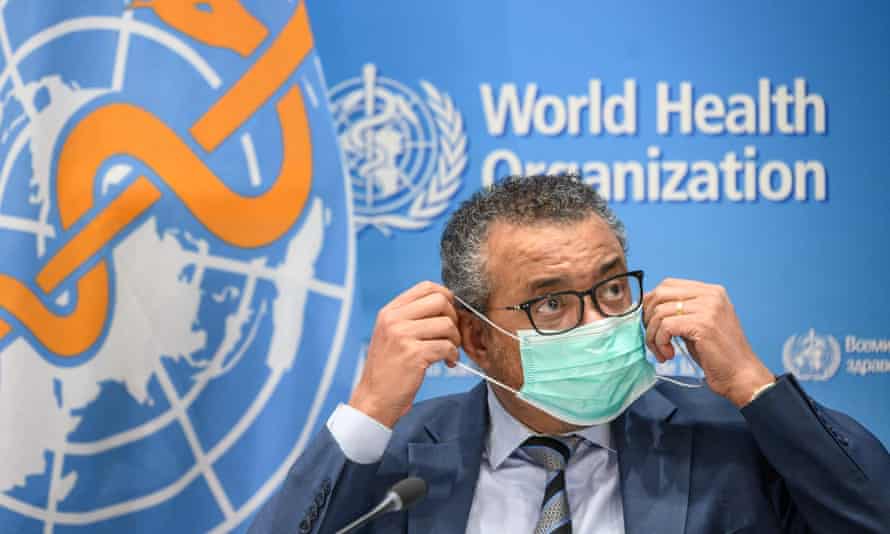The World Health Organization’s (WHO) director-general has warned that holiday celebrations may lead to “more cases, overloaded health systems, and more deaths” in many regions, and has advised people to postpone parties.
Tedros Adhanom Ghebreyesus said, “An event canceled is better than a life canceled.”
According to Tedros, the Omicron form is spreading quicker than the Delta variant and is infecting patients who have already been vaccinated or have recovered from Covid-19 illness.
WHO chief scientist Soumya Swaminathan added it would be “unwise” to conclude from early evidence that Omicron was a milder variant that previous ones … with the numbers going up, all health systems are going to be under strain,” Soumya Swaminathan told Geneva-based journalists.
The variant is successfully evading some immune responses, she said, meaning that the booster programmes being rolled out in many countries ought to be targeted towards people with weaker immune systems.
“There is now consistent evidence that Omicron is spreading significantly faster than the Delta variant,” Tedros told the briefing.
“And it is more likely people vaccinated or recovered from Covid-19 could be infected or re-infected,” Tedros said.

- Police arrested six armed robbers who forced passengers to strip naked on a bus.
- The number of coronavirus positives in the Premier League has reached a new high.
Their comments echoed the finding of study by Imperial College London, which said last week the risk of reinfection was more than five times higher and it has shown no sign of being milder than Delta.
WHO officials said however that other forms of immunity vaccinations may prevent infection and disease. While the antibody defences from some actions have been undermined, there has been hope that T-cells, the second pillar of an immune response, can prevent severe disease by attacking infected human cells.
WHO expert Abdi Mahamud added: “Although we are seeing a reduction in the neutralisation antibodies, almost all preliminary analysis shows T-cell mediated immunity remains intact, that is what we really require.”
However, highlighting how little is known about how to handle the new variant that was only detected last month, Swaminathan also said: “Of course there is a challenge, many of the monoclonals will not work with Omicron.”
She gave no details as she referred to the treatments that mimic natural antibodies in fighting off infections. Some drug makers have suggested the same.
But the WHO team also offered some hope to a weary world facing the new wave that 2022 would be the year that the pandemic, which already killed more than 5.6 million people worldwide, would end.
It pointed towards the development of second and third generation vaccines, and the further development of antimicrobial treatments and other innovations.
“(We) hope to consign this disease to a relatively mild disease that is easily prevented, that is easily treated,” Mike Ryan, the WHO’s top emergency expert, told the briefing.
“If we can keep virus transmission to minimum, then we can bring the pandemic to an end.”
However Tedros also said China, where the Sars-CoV-2 coronavirus was first detected at the end of 2019, must be forthcoming with data and information related to its origin to help the response going forward.
“We need to continue until we know the origins, we need to push harder because we should learn from what happened this time in order to (do) better in the future,” he said.
“2022 must be the year we end the pandemic.”
Since it was first reported in South Africa in November, Omicron has been identified in dozens of countries, dashing hopes that the worst of the pandemic is over.
Tedros said the strain appears to have the ability to double its infections every 1.5 to three days. “That is really fast.”
Tedros pointed out that regardless of the variant’s severity, “the sheer number of cases … may overwhelm the health system” and more people could die.
More than 5.3 million people have died since the start of the pandemic, though the true toll is believed to be several times higher.
Many vulnerable people around the world are still waiting for a first vaccine dose, and the UN health agency has said it is better to prioritise them over providing fully vaccinated health adults with boosters.
“If we are to end the pandemic in the coming year, we must end inequity,” Tedros said.
With Reuters and Agence France-Presse
![Omicron]](https://www.sweetrhythmsonline.com/wp-content/uploads/2021/12/Omicron-696x418.jpg)


